Where Did It All Go Wrong?
By Stephen Berry
Churchill, Hitler and the Unnecessary War. How Britain Lost Its Empire and the West Lost the World, by Patrick J. Buchanan. Crown Publishers, 2008, $29.95.
“All about us we can see clearly now that the West is passing away.” is the first paragraph of a remarkable book by Pat Buchanan. If the reader is expecting a discussion of the falling birth rates of advanced countries, immigration into Europe and the USA from the Third World and the relative economic decline of the West when compared with Asia, he will be disappointed. If he is expecting a debate around the thesis that there is no real decline of the West, that in fact the rest of the world is becoming more and more like the West, he should go elsewhere. Buchanan’s book concentrates on the foreign policies of the great European powers and the USA since 1900. In particular, he wants to know why two world wars broke out in the first half of the 20th century, wars which Buchanan believes, dealt a mortal blow to Western civilisation.
A special mention is reserved for Britain. Buchanan believes that the UK, because of its empire, turned both European wars into world wars. If Britain had not declared war in 1914, Canada, South Africa, Australia, New Zealand and India would not have joined World War One. It is also doubtful if Japan and the USA would have taken part. If the UK had stayed out, Germany would have been rapidly victorious and there would have been “no Lenin, no Stalin, no Versailles, no Hitler, no Holocaust.” (p. xvii) Likewise, if Britain had not given a guarantee to Poland in 1939 and later declared war on Germany, the Dominions and the USA would likely have stayed out of World War Two. A German-Polish war would never have lasted six years and cost 50 million lives.
All this is a far cry from the standard interpretation of British involvement in the world wars and music to the ears of someone who has always wondered why two conflicts which were so obviously disastrous to the British economy and British society are treated as so self evidently worthwhile. Buchanan quotes Sir Roy Denman, a Labour Party elder statesman, on page xvi.
At the beginning [of the twentieth century], Britain, as the centre of the biggest empire in the world, was at the zenith of her power and glory; Britain approaches the end as a minor power, bereft of empire …[O]n the world stage Britain will end the century little more important than Switzerland. It will have been the biggest secular decline in power and influence since seventeenth-century Spain.
Imperialists and anti-imperialists, defenders and sceptics of British involvement in the two world wars can unite in recognising the truth of Denman’s statement. Remember, in this book Buchanan is not questioning the heroism of the British people in the two wars, he is merely wondering if their statesmen were wise.
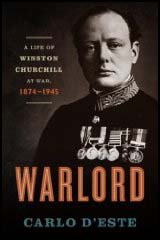
Churchill, man of the century?
Buchanan has one further aim in this book, and that is to question the Churchill cult which he believes has arisen amongst America’s elite. To these people, resistance to US power anywhere in the world becomes another 1938. Slobodan Milosevic, presiding over a disintegrating Yugoslavia, becomes a Hitler of the Balkans. Saddam Hussein, whose army was routed in a few hours in 1991, becomes the Arab Hitler, ready to threaten mankind with weapons of mass destruction. The Churchill cult led to the bombing of Serbia which had never threatened the U.S. and to the invasion of Iraq which President George W. Bush thought would be welcomed in the same way that the invasion of Europe in 1944 was. Buchanan sees the Churchill cult as a recipe for more wars, one of which may do to America what the two world wars did to Britain. For it was Churchill who was one of the most ardent supporters of British entry into war in both 1914 and 1939 and it was these wars which played such a large part in the collapse of his beloved empire.
Does Buchanan make his case? Let’s return to the beginning of the 20th century and the run up to the war that begun in August 1914, described by the French historian Jacques Barzun as “the blow that hurled the modern world on its course of self-destruction.” (p. xvii)
From the vantage point of ‘the empire on which the sun never sets’, the ‘splendid isolation’ of the years immediately before 1900 had become rather alarming. In 1895, Britain received a virtual ultimatum from the U.S. secretary of state to accept U.S. arbitration in a dispute between Venezuela and British Guiana. In 1896, the Kaiser impertinently sent President Kruger a congratulations telegram after the capture of the British Jameson raiders. In December 1897 a Russian fleet steamed into the Chinese harbour of Port Arthur, obliging British warships to vacate the area. Lord Salisbury, the British Prime Minister, lamented, “I don’t think we carry enough guns to fight them and the French together.” (p. 2) In 1898, British and French troops clashed at Fashoda in Africa and, for a while, it appeared that France and Britain were on the brink of war. But what really set the cat amongst the pigeons was the outbreak of war with the Boers in 1899. Continental Europeans and Americans alike cheered the initial defeats of the British. It seemed that the Kaiser was right when he remarked that Britain “was without a friend in the world”.

Lord Salisbury, British Prime Minister in 1900: "Isolation is much less dangerous than the danger of being dragged into wars which do not concern us."
Salisbury was not slow to act. Britain sided with America during the its 1898 war with Spain, settled the Alaskan boundary dispute in America’s favour and ceded to the U.S. the sole rights to build, operate and fortify a canal across Panama. These actions helped to end a century of U.S.-British enmity and have been described by the Yale historian Hajo Holborn as “ by far the greatest achievement of British diplomacy in terms of world history.” (p. 4) Next Britain turned to Asia. In 1902, the Anglo-Japanese treaty was signed. Each power agreed to remain neutral if the other was engaged in an Asian war with one other power. Should either however, be involved in war with two other powers, each would come to the aid of the other. On the basis of this treaty, Japan inflicted a heavy defeat on imperial Russia in 1905. Britain’s main rival in Asia was brought under control.
But it was in Europe where the change in British diplomacy was most far reaching. In 1904 an entente cordiale was signed between Britain and France. Various colonial disagreements between the countries were settled, but more ominously, secret talks between the British and French military were set in motion as to how a British army might be ferried across the Channel in the event of war with Germany. In 1907, the final piece in the jigsaw puzzle fell into place when Britain entered into an Anglo-Russian convention, again settling long standing colonial disputes. This completed the line up of powers ready for the great European war. On the one side was the Triple Alliance of Germany, Austro-Hungary and Italy. Opposite was the Franco-Russian alliance backed by Britain which was allied to Japan.
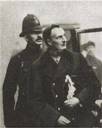
Sir Edward Grey. The British Foreign Secretary who saw the Entente Cordiale as the springboard to something more substantial.
Buchanan makes one very important point. For many MPs and ministers the treaties with France and Russia were regarded as the settling of colonial disputes and little more. It was Sir Edward Grey, the foreign secretary, who viewed the agreements as a springboard for full hearted intervention in European affairs. The threat of a German-dominated Europe outweighed the damage of war. “If we are engaged in war, we shall suffer but little more than we shall suffer if we stand aside,” Grey remarked. How very wrong he turned out to be.
Buchanan is rather ambivalent about the role of German foreign policy in the run up to World War One. At first blush, it seems to have been an unmitigated disaster. After the defeat of France in 1870 Bismarck rightly aimed to keep France and Russia apart and Britain neutral. These were the twin pillars of German foreign policy, essential prerequisites for her security. The first pillar fell shortly after Bismarck’s dismissal by the Kaiser in 1890. The secret Reinsurance Treaty with Russia was allowed to expire, despite Russian requests to renew it. Shortly after, in 1892, the Franco-Russian alliance was signed ending French diplomatic isolation. This alliance formed the basis of the opposition to Germany in 1914.
Even worse perhaps, in the decade before the First World War, Germany engaged in a naval race with the British. Buchanan wants to point out that Germany had a perfect right to have as big a navy as she wished, that the German merchant marine was large and needed protection. He also follows Niall Ferguson by indicating that the Germans were willing to make a naval deal in return for a neutrality agreement in the event of a Franco-German war. But how can these arguments be set beside the overriding imperative for the Germans of ensuring that Britain did not side with France against Germany in a major war? The Anglo-German naval race in the decade before 1914 was the one thing that most guaranteed that Britain would side with the French if conflict occurred on mainland Europe.
Buchanan rightly point out flaws in British foreign policy, but the big failure before 1914 seems to have happened in Germany. This may have been the result of the provision in the German constitution which stipulated that foreign policy should be the remit of the German chancellor and Kaiser alone – the Reichstag was excluded. When a genius like Bismarck was chancellor, this arrangement worked well. After 1890, with less competent chancellors and an erratic Kaiser, it took less than 25 years for Germany to arrive in a position were she was faced by all the major powers of Europe, bar Austro-Hungary. Bismarck saw it coming. In the mid-1890s he said, “Jena came 20 years after the death of Frederick the Great; the crash will come twenty years after my departure if things go on like this”.
.jpg)
Bismarck, the German Chancellor: “Jena came 20 years after the death of Frederick the Great; the crash will come twenty years after my departure if things go on like this"
Were the German war aims in 1914 such as to necessitate British intervention? The main ones were:
- The creation of an economic association of France, Austro-Hungary, Poland with Germany at its head.
- Cession to Germany of territories to enable her to unite the German African colonies into a single bloc.
- Poland and the Baltic states to be taken from Russia with Poland becoming independent
Buchanan quotes Niall Ferguson at this point:
German objectives, had Britain remained out, would not in fact have posed a direct threat to the [British] Empire; the reduction of Russian power in Eastern Europe, the creation of a Central European Customs Union, and the acquisition of French colonies – these were all goals that were complementary to British interests. (p. 61)
In the event, Britain became involved in a war that would cost the lives of over 900,000 troops from Britain and her colonies, and for what? If we assume an eventual German triumph, then we must also assume resentful enemies in both France and Russia. Germany, as the most powerful nation on mainland Europe, would be aligned with an independent Poland that owed its existence to Germany. These two powers would have been the western bulwark against a Russian drive into Europe. None of these outcomes were inimical to British interests. Classical Liberals know that even the victors lose economically as a result of wars. What can surprise is that the political results of wars may also leave the victors in a worse strategic position than they were before. World War One was such a war for Britain and the problems became clear after 1918.
“Democracy is more vindictive than Cabinets,” Churchill remarked. “The wars of peoples will be more terrible than those of kings.” (pp. 72-73) The Treaty of Versailles at the end of the war amply bore Churchill’s warning out. The Germans were going to be made to pay:
- Eupen and Malmedy were to be taken from Germany and given to Belgium.
- Alsace and Lorraine were taken by France.
- The Saarland was placed under League of Nations control and its coal mines given to France. The Germans of the Saar could in 15 years time vote on whether they wished to return to Germany.
- In Schleswig, a plebiscite was held to divide the land with Denmark.
- The East Prussian port of Memel was seized by Lithuania.
- Much of Upper Silesia was stripped from Germany and given to the Poles despite the result of a plebiscite.
- Danzig, with a population more than 90 per cent German was declared a free city and placed under League of Nations control.
- East Prussia was separated from Germany by a ‘Polish Corridor’ which put millions of Germans under Polish rule.
Versailles stripped from Germany one-tenth of her people and one-eighth of her territory. The German overseas empire was also confiscated and all private property of German citizens in German colonies was declared forfeit. The size of the Germany army was strictly limited and the German High Seas and merchant fleets were seized. In 1920, a bill of 32 billion gold marks was set as reparations for the war. Finally, under article 231 of the treaty, Germany was to accept full responsibility for causing the war and all the damage resulting. This last article was widely regarded as absurd – and not just in Germany.
Buchanan quotes Sir Roy Denman’s analogy:
These terms are difficult to bring home to British readers. But, supposing that Britain had lost the U-boat war in 1917, and Germany had imposed an equivalent peace; it could have meant British recognition that its policy of encirclement [of Germany] had caused the war; confiscation of British colonies and the British merchant fleet; Dover and Portsmouth occupied; the Royal Navy reduced to half a dozen destroyers; south-east England demilitarised; Liverpool a free port, with a corridor under German rule to Harwich; crippling reparations. No post-war British government would have accepted this indefinitely.” (p.77)
Nor would post-war German governments accept Versailles indefinitely.
The British Empire appeared to come out of Versailles as the great winner. The Hohenzollerns, Romanovs, Habsburgs and Ottomans were no more, but the British Empire had grown by an additional 950,000 square miles and millions of subjects. In 1920, as Buchanan points out, “a man could walk from Kuwait to Cairo, turn south, and walk the length of Africa to Cape Town without leaving a British Dominion, colony or protectorate” (p.100). Yet, these gains were outweighed by huge costs.
The total number of casualties for the British Empire was 921,000. The originator of the Imperial War Graves Commission, Sir Fabian Ware, calculated that if the dead were to march abreast down Whitehall, the parade past the Cenotaph would last three and a half days. British debt was fourteen times what it had been in 1914 and this would affect the post-war defence spending required to defend Britain’s huge overseas commitments. But the main losses to Britain were in the moral sphere. How could the British and Europeans spend four years butchering each other and then assert their right to govern other peoples wisely? Moreover, the Wilsonian sermons on ‘self-determination’ had been heard outside the German, Austro-Hungarian and Ottoman empires. Balfour had promised the Jews a homeland in Palestine. T. E. Lawrence had stirred up Arab nationalism to defeat the Turks. By the time Lloyd George returned to London from Versailles, revolt had broken out in Ireland and there were rebellions in Egypt, Iraq and India. Awarded the order of merit by George V, he said, “We shall have to do the whole thing over again in twenty five years … at three times the cost.” (p. 110)
I parted company with Buchanan on the relations of the European powers before World War One. But on the salient issues of British Foreign policy during the inter-war years, he is absolutely right. We must remember that by 1921 Britain had lost a number of important allies. Russia was in the midst of a civil war and soon to be controlled by a regime which was deeply antagonistic to the West. America, whose troops and resources had been important in winning the war had rejected Versailles – Buchanan writes “The Senate never did a better day’s work than when it rejected the Treaty of Versailles and refused to enter the a League of Nations” (p. 110). The U.S. was not going to give thousands of lives again so that the British could add to their ill-gotten imperial gains. But Britain still did have Japan, the most powerful nation in Asia as its ally.

Billy Hughes, the Australian Prime Minister: "You propose to substitute for the Anglo-Japanese alliance and the overwhelming power of the British Navy a Washington Conference?"
At least, they did have Japan as an ally until 1922. In that year, the alliance came up for renewal and the British chose to snub the Japanese. Why? It seemed crazy. The Australian Prime Minister, Billy Hughes, had wondered how the British colonies and dominions in Asia would have fared if Japan had been neutral or a German ally in World War One and the answer must be ‘not very well’. Yet the USA wanted the Anglo-Japanese treaty scrapped and scrapped it was. Much of the British elite was obsessed, then as now, by the ‘special relationship’ with their American cousins. Add in the fact that British debt had exploded fourteen fold as a result of the war and it would not do to offend the Americans who could demand payment of war debts. As Buchanan writes, “The Yankees now held the mortgage on the empire.” (p. 122)
But there was another reason. ‘Wilsonianism’ (named after the American President, Woodrow Wilson) was the doctrine that the horrors of World War One had given birth to a new world where men recognised the folly of war and were prepared to altruistically work together to foster international co-operation. This idea had been firmly imprinted on the British psyche after ‘the war to end all wars’. The Washington Naval Conference of 1922 resulted not only in the end of the Anglo-Japanese Alliance but also a Four Party Treaty by which America, Britain France and Japan would agree to settle their disputes by diplomacy. The treaty also fixed the proportions of naval ships of all the major powers, again to the disadvantage of the UK. The conference resulted both in levels of disarmament ensuring that Britain no longer had a sufficiently strong fleet to defend its empire and the Japanese being turned from a protector to a potential predator of British possessions in Asia. “You propose to substitute for the Anglo-Japanese alliance and the overwhelming power of the British Navy a Washington Conference?” questioned Billy Hughes before the British delegation set off to the U.S. Yes, they did and Correlli Barnett rightly regards the Washington Naval Conference as “one of the major catastrophes of English history.” (p. 120) Alone in Asia, Britain now faced a hostile Soviet Union, a xenophobic China and a bitter Japan. Events in 1942 would demonstrate the folly of antagonising Japan to please a U.S. which was both isolationist and indifferent.
As it was with Japan in the 1920s, so it was with Italy in the 1930s. When Hitler first came to power, Mussolini was deeply unimpressed. He considered Hitler a buffoon after their first meeting in Venice. (“What a clown this Hitler is”) Mussolini’s attitude rapidly turned to repulsion after The Night of the Long Knives and the murder of Dollfuss, the Austrian Chancellor, by Austrian National Socialists. Il Duce exclaimed, “Hitler is the murderer of Dollfuss … a horrible sexual degenerate, a dangerous fool.” After all, Mussolini did believe that Fascism was quite different from National Socialism.
Both are authoritarian systems, both are collectivist, socialistic. Both systems oppose liberalism. But Fascism is a regime that is rooted in the great cultural tradition of the Italian people; Fascism recognises the right of the individual, it recognises religion and family. National Socialism … is savage barbarism; the chieftain is lord over life and death of his people. Murder and killing, loot and pillage and blackmail are all it can produce. (p. 138)
And above all, Italy wanted an independent Austria and Hitler wanted to incorporate this country into the Third Reich.
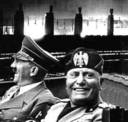
Mussolini on Hitler. “Hitler is the murderer of Dollfuss … a horrible sexual degenerate, a dangerous fool.”
Matters came to a head in March 1935 when Germany announced its intention to increase the size of its army to 400,000 men – four times the army allowed by Versailles – and to introduce conscription. In April, the leaders of Britain, France and Italy met at the Italian town of Stresa, announced that they would resist any further infringement of the Versailles Treaty and affirmed the independence of Austria. Mussolini wanted a small independent state on the other side of the Brenner Pass and knew a hard line against Germany was necessary.
But almost immediately Britain undermined the ‘Stresa Front’, as it was called. A naval agreement was signed between Britain and Germany where Germany was permitted 35 per cent of the Royal Navy surface ships and submarine parity. Historians have argued as to whether the UK was giving away too much here, but the point which need concern us is the fact that the other members of the Stresa Front were not consulted about this agreement. The Stresa Front was aimed at Germany, but then Perfidious Albion went behind the back of France and Italy and cut a deal with Hitler. How could you rely on such country?
The second and decisive blow to Stresa was dealt by the Abyssinian crisis. We need not consider the details of this matter here. If Il Duce wanted his place in the sun, was Britain in a moral position to criticise? Buchanan tells the story of how a French woman informed Churchill that Italy was only doing in Ethiopia what Britain had practised for centuries. Churchill replied, “Ah, but you see, all that belongs to the unregenerate past, is locked away in the limbo of the old, wicked days. The world progresses.” (p. 150) Morally right or not, Britain led the campaign in the League of Nations to impose sanctions against Italy, an action that ran clean counter to what was demanded by strategic necessity. In the end the UK got the worst of both worlds, making an enemy of Mussolini but refusing to enact the one sanction that might have affected Italian policy in Africa, an oil embargo.
Six months later, Britain and France sought out Italy to stand with them when Hitler reoccupied the Rhineland. Italy, still facing League sanctions, gave the predictable answer. Mussolini had turned to Germany for succour and by Munich 1938 Hitler had his alliance with Italy. Britain lost Italy, and this was a country which sat astride the Mediterranean sea lanes so critical to the defence of British possessions in the Middle and Far East. Between 1922 and 1935 Britain had severed its alliance with Japan, radically reduced the strength of the Royal Navy and needlessly antagonised Italy; a hat-trick of own goals.
The reoccupation of the Rhineland in 1936 and the Munich Conference of 1938 are fully dealt with by Buchanan in his book and are two of the main events of the Churchillian myth. I will only remark that after the UK had ‘dispensed with’ two of her main allies from World War One, she was not in quite a perfect position to put diplomatic pressure on Germany. One curiosity: Buchanan takes the position that the reoccupation of the Rhineland was “the crucial moment of the postwar era.” (p. 181) This sounds a little strange when we remember that he regarded the German September 1914 programme with studied insouciance. On the Rhineland, I share the feelings of Bernard Shaw who quipped, “It was as if the British had reoccupied Portsmouth.” (p. 176) Britain would never go to war for such a cause.

George Bernard Shaw on the Rhineland crisis: "It was as if the British had reoccupied Portsmouth."
The final act in the tragedy of British foreign policy between the wars occurred in the spring of 1939. On the night of November 9th, 1938 Nazi storm troopers went on a rampage looting Jewish shops and burning synagogues. After what came to be known as Kristallnacht, British public opinion turned radically against Hitler. According to Paul Johnson, “During the winter of 1938-9 the mood in Britain changed to accept war as inevitable.” (p. 241) On the back of all this, the Germans marched into Prague in March 1939, in direct contravention of the Munich agreement six months previously.
Buchanan gives a full account of the intracacies of Eastern European politics and the tensions between the various ethnic groups in Czechoslovakia which had brought this about. But it is perfectly clear that Hitler had acted in bad faith. According to Henry Kissinger, the “destruction of Czechoslovakia made no geopolitical sense whatever; it showed that Hitler was beyond rational calculation and bent on war.” (p. 249) What was the British response? On March 31st, Chamberlain rose in the House of Commons and said:
I now have to inform the House that …. In the event of any action which clearly threatened Polish independence and which the Polish Government accordingly considered it vital to resist with their national forces, His Majesty’s Government would feel themselves bound at once to lend the Polish Government all support in their power. They have given the Polish Government an assurance to that effect.” (p. 255)
The UK was now committed to fight for Poland. Britain had reversed its traditional Eastern European policy by giving Poland a guarantee. It was now up to the Poles to decide when and whether the time had come to fight. The promise was one-sided, for Poland was not asked to give a reiprocal assurance. In particular, if it came to a dispute about Danzig, the Poles knew that they only had to dig their heels in and the British grenadiers would fight for Poland. Roy Denman saw the guarantee to Poland as the fatal blunder that led to the collapse of the British Empire. “The fear that after Poland Hitler would have attacked Britain was an illusion. As he had made clear in Mein Kampf, Hitler would have marched against Russia. As it was, Britain was dragged into an unnecessary war, which cost her nearly 400,000 dead, bankruptcy and the dissolution of the British Empire”. (pp. 265-6)
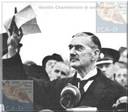
Neville Chamberlain returns from Munich.
Buchanan speculates on Chamberlain’s motives for such a sudden volte-face. Lloyd George believed that Chamberlain’s ‘hair-brained pledge’ had been an impulsive reaction to his humiliation by Hitler. In his 1976 book, March 1939: The British Guarantee to Poland, Simon Newman also thought that the critical decisions of March 1939 were made in an atmosphere of panic, humiliation and moral hysteria. Lord Halifax, the Foreign Secretary, backed Chamberlain on the guarantee and thought of it as a way of maintaining British preeminence in Europe. He preferred war and the sacrifice of Poland to the return of Danzig to the Third Reich and German hegemony in Eastern Europe.
But there was an alternative. This involved the realisation that Britain and France no longer had the power to save any nation in Eastern Europe, let alone one placed between Nazi Germany and Bolshevik Russia. Hitler should have been allowed to move forward with the strong probability that he would have come into contact with Stalin. As Hanson Baldwin, military writer for the New York Times put it. “There is no doubt whatsoever that it would have been to the interest of Britain, the United States, and the world to have allowed – and, indeed, to have encouraged – the world’s two great dictatorships to fight each other to a frazzle… It would have placed the democracies in the supreme power in the world, instead of elevating one totalitarianism at the expense of the other and the democracies.” (p. 272)
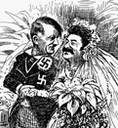
The Hitler-Stalin pact completed the strategic defeat of the UK.
Chamberlain simply should have told the truth, Hitler was not to be trusted and it was necessary to rearm. The British could not improve anything by offering to the Poles a support they were unable to give. Instead, a guarantee was given and then, typically, negotiations with the Soviet Union, the only country which could realistically aid the Poles against the Germans, dragged on throughout the summer of 1939. Events came to a head when on August 23rd, 1939 the Hitler-Stalin pact was announced. This meant that once more Poland would be partitioned. More important perhaps, it meant that Britain had been strategically isolated. First Japan, then Italy and now the Soviet Union. All had been lost as potential allies and it therefore was senseless for Britain to begin a war against Germany on behalf of a country which could not be defended. Nevertheless, on September 3rd, Britain did declare war and what would eventually have been a German thrust against the Soviet Union was deflected for a time against the West. A fitting end to this period of British diplomatic history. As Britain had only four or five divisions ready for action Buchanan calls to mind the remark of Kitchener in 1914: “No one can say that my colleagues in the Cabinet are not courageous. They have no army and they declared war against the mightiest nation in the world.” (p. 297)
Great play is still made of the UK resisting Germany and Continental Europe alone in 1940. This book explains how Britain had come to such a position and Buchanan makes it clear that the German military victories of 1940 were only part of the story. Pursuing a League of Nations agenda, antagonising Japan and Italy, keeping the Soviet Union at arms length were all a prelude to the disaster of 1940. Against a more astute German leader than Hitler these policies would certainly have led to the loss of the war. As it was, they merely led to the loss of the British Empire. Pat Buchanan has done a tremendous service by pointing all this out in his frank and well written book.
![]()

Top 50 books of all time : by Old Hickory:-
"I have limited the selection to the books I have read. I keep to the norm of not recommending to others books I have yet to read. Clearly, books I have not read by now suggests a judgement of some sort."
PDF version
of this article
![]()
Download
Requires Adobe Acrobat Reader. This is available
for free at www.adobe.com
and on many free CDs.

The Alternative
Bookshop
Which specialises in,
but does not limit itself
to, books on Liberty
and Freedom ... Book
reviews, links,
bestsellers, rareties,
second— hand,
best price on books,
find rare books.
|
|
|
|
|
|
|